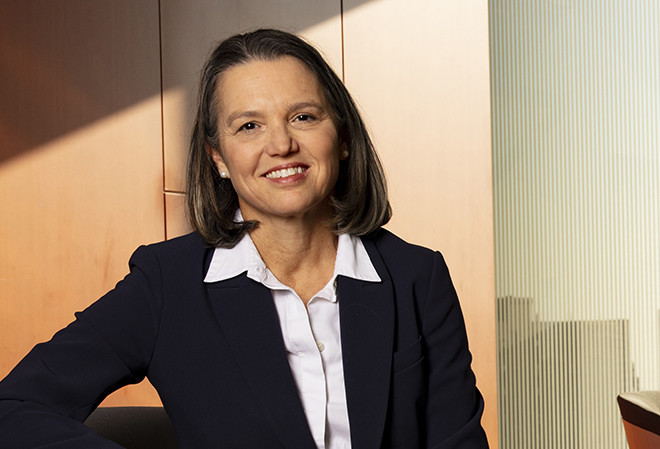Katrina Armstrong, the chief executive of Columbia University Irving Medical Center and dean of the Vagelos College of Physicians and Surgeons, was named interim president of the University on August 14, following the resignation of Minouche Shafik.
Shafik, an economist who led Columbia for one year, stepped down after months of campus tensions related to the Israel-Hamas war. “I have had the honor and privilege to lead this incredible institution, and I believe that — working together — we have made progress in a number of important areas,” Shafik wrote in a letter to the Columbia community. “However, it has also been a period of turmoil where it has been difficult to overcome divergent views across our community … Over the summer, I have been able to reflect and have decided that my moving on at this point would best enable Columbia to traverse the challenges ahead.”
“While we are disappointed to see her leave us, we understand and respect her decision,” wrote David Greenwald ’83LAW and Claire Shipman ’86CC, ’94SIPA, co-chairs of the University Trustees, in a letter on behalf of the board. “In this difficult year, Minouche has worked, inspired, and led tirelessly. Her wisdom, empathy, and deep commitment to our community have guided us through challenges that are both unique in scale and unique to this moment.”
After recognizing Shafik’s accomplishments as president, the Trustees said they were “taking all necessary steps to ensure a smooth leadership transition” and expressed gratitude that Katrina Armstrong, who has led Columbia’s medical center since 2022, had agreed to step in. “Katrina has distinguished herself as a physician, investigator, teacher, and leader with a unique ability to listen actively to all voices, incorporate lessons from across disciplines, advance innovative teaching that positions learners of all backgrounds for success, and bring together teams from across communities to work together toward a common purpose,” wrote the Trustees. “Authentic and direct, she has exhibited exemplary, values-driven leadership while managing the largest and most complex division of our University.”
In her own letter to the Columbia community, Armstrong wrote that she was “deeply honored to be called to serve as interim president of our beloved institution.” Acknowledging that Columbia is at a pivotal moment, she said that “challenging times present both the opportunity and the responsibility for serious leadership to emerge from every group and individual within a community … Never has it been more important to train leaders capable of elevating society and addressing the complexity of modern life. Columbia University has a long history of meeting the moment, and I have faith that we will do so once again.”



